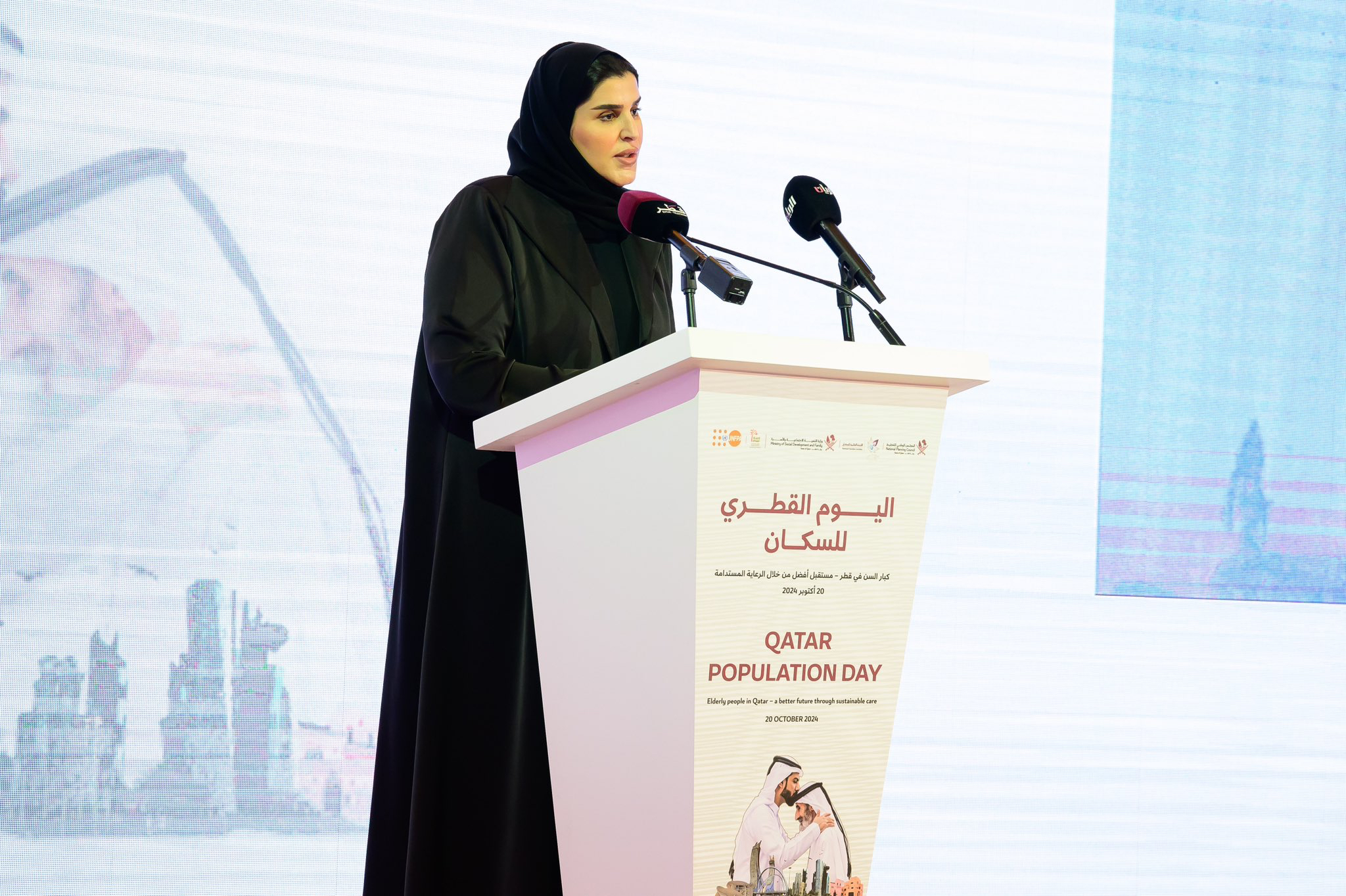Menopause occurs when a woman has not experienced menstruation in 12 consecutive months. This usually begins between the ages of 45 and 55 years but can develop earlier or later, depending on the woman. When a woman is in menopause, she can no longer become pregnant naturally.
Menopause can trigger a number of uncomfortable symptoms including hot flashes and weight gain; most women, however, do not require medical treatment for menopause.
World Menopause Day is celebrated every year on the 18th of October to raise awareness about menopause and the support that is available for women worldwide.
How long does menopause last?
Although a small number of women can experience menopause symptoms up to a decade before menopause actually occurs, on average, women start to experience menopause-related symptoms approximately four years before their last period.
After that, symptoms tend to continue for an extra four years. That said, one in ten women experience menopause symptoms for 12 years after their last period.
The median age for menopause is 51, although studies have shown that it may occur on average for up to two years earlier amongst various demographics in black and Latina communities. More research is needed to better understand the onset of menopause for different ethnicities.
Approximately 1% of women start menopause before the age of 40, a phenomenon referred to as premature menopause or primary ovarian insufficiency, whilst about 5% of women will experience “early menopause” between the ages of 40-45.
There are a number of factors that can help predict when you’ll begin menopause, these include genetics and overall ovary health.
Studies show that the age of onset of menopause is influenced by the age at first menstruation period, the use of oral contraceptives, the number of pregnancies, a woman’s Body Mass Index (BMI), physical activity and other factors.
Why does it occur?
Menopause is a natural process that begins as the ovaries age and start to produce less reproductive hormones. Lower levels of hormones such as estrogen, progesterone, testosterone, luteinizing hormone and follical-stimulating hormone, trigger several changes in women’s bodies.
What are the stages of menopause?
The stages of menopause can be divided into perimenopause, menopause, and postmenopause.
During perimenopause, menstrual periods start to become more irregular and menstrual flow may also become heavier or lighter.
Perimenopause can last from a few months up to several years. While many women begin the perimenopause stage after their mid 40’s, other women completely skip this stage and enter menopause suddenly.
After a full year without menstruation, menopause occurs, followed by postmenopause which refers to the years after menopause.
What are the symptoms?
Although each woman has a unique experience with menopause, symptoms tend to be more severe when menopause occurs more suddenly over a shorter period of time.
While certain lifestyle factors can influence the severity and duration of symptoms, medical conditions, especially those with direct impact on the health of the ovaries such as cancer or a hysterectomy, can also increase the severity and duration of symptoms.
The symptoms of perimenopause, menopause and postmenopause, aside from the changes in menstruation, are mostly the same. Most common early signs of perimenopause include:
- Less frequent menstruation
- Periods that are either heavier or lighter than usual
- Vasomotor symptoms which include hot flashes and night sweats.
Other symptoms of menopause include:
- Insomnia
- Weight gain
- Depression and anxiety
- Problems with memory
- Difficulty concentrating
- More frequent headaches
- Palpitations/racing heart
- Urinary tract infections
- Reduced bone mass
- Painful, stiff joints
- Hair thinning or loss
- Increased hair growth on certain areas of the body such as the face, neck, chest and upper back.
In addition, more serious complications may occur that require the attention and support of a medical professional. Common complications of menopause include:
- Osteoporosis or weakness in the bones with reduced bone mass and strength
- Cataracts
- Periodontal disease
- Urinary incontinence
- Heart/ blood vessel diseases
- Sudden mood or emotional changes
Treatments, remedies and lifestyle changes
Some women may require treatment if their symptoms are severe or are affecting their quality of life.
Hormone therapy can be effective for women who are under the age of 60 or are within 10 years of the onset of menopause. This type of therapy can help with the management of a number of symptoms including hot flashes, night sweats and osteoporosis. Other medications can be used to treat specific symptoms such as hair loss.
Lifestyle changes and remedies can also be used to reduce menopause symptoms that are minor-to-moderate in severity. Tips for managing menopause symptoms at home include:
- Exercising and maintaining a healthy weight by reducing your daily calorie intake. This can help increase energy, promote better sleeping habits and improve overall mood and wellbeing.
- Keeping cool and staying comfortable by dressing in loose, layered clothing. This can help manage hot flashes and is especially important during the nighttime and when the weather is warm or unpredictable. Keeping the bedroom cool and avoiding blankets that are heavy at night can also reduce the chances of night sweats. During the day, you can also carry a portable fan to help you cool down when you’re feeling particularly flushed.
- Taking vitamin D, magnesium and calcium supplements can help reduce the risk of osteoporosis as well as improve energy levels in the daytime, and quality of sleep in the nighttime. Your doctor will be able to advise you about the right supplements for your individual needs.
- Quitting smoking and avoiding alcohol. Exposure to cigarettes as well as consuming alcohol may make your symptoms worse, therefore, it is important to limit both.
- Practicing relaxation techniques such as yoga and meditation can help with sudden mood or emotional changes.







